AITA for refusing to cover for my sister’s affair when her husband confronted me?
Family bonds can be strong, but should they extend to covering up a betrayal? That’s the dilemma OP found themselves in after their sister (32F) confided in them about her affair—then expected them to keep it a secret.
But secrets don’t stay hidden forever. When the husband (35M) came knocking, OP tried to stay neutral, but their reaction spoke volumes. Now, the sister is furious, the parents think OP should’ve protected her, and OP is left wondering: Did they really “ruin” their sister’s life, or was that her doing?

‘AITA for refusing to cover for my sister’s affair when her husband confronted me?’
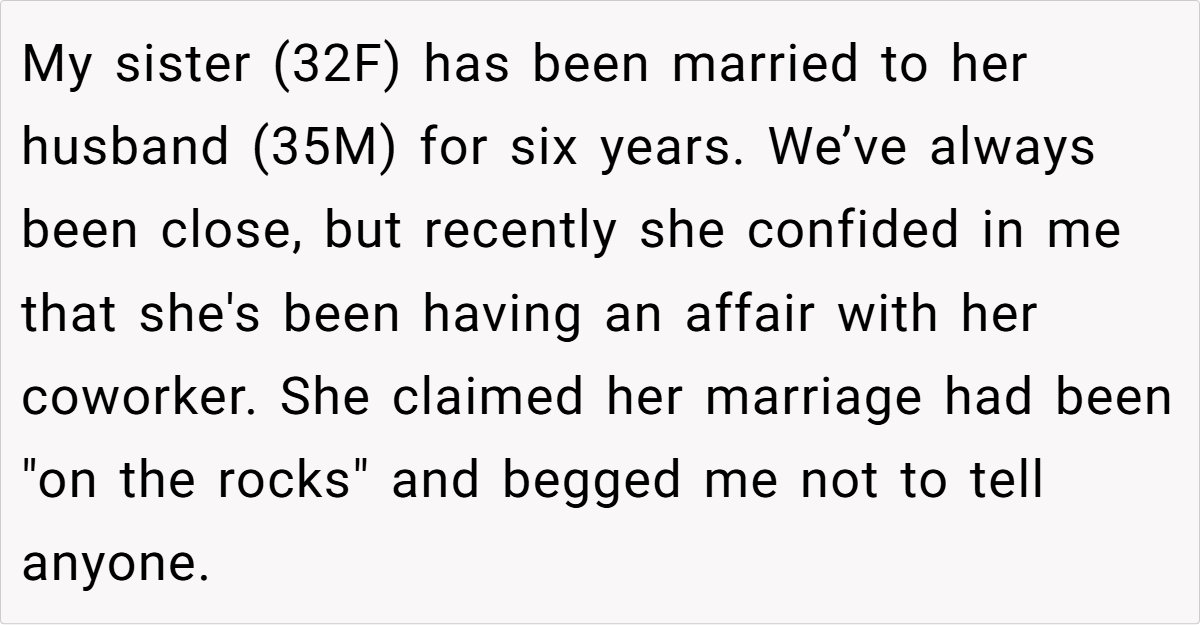
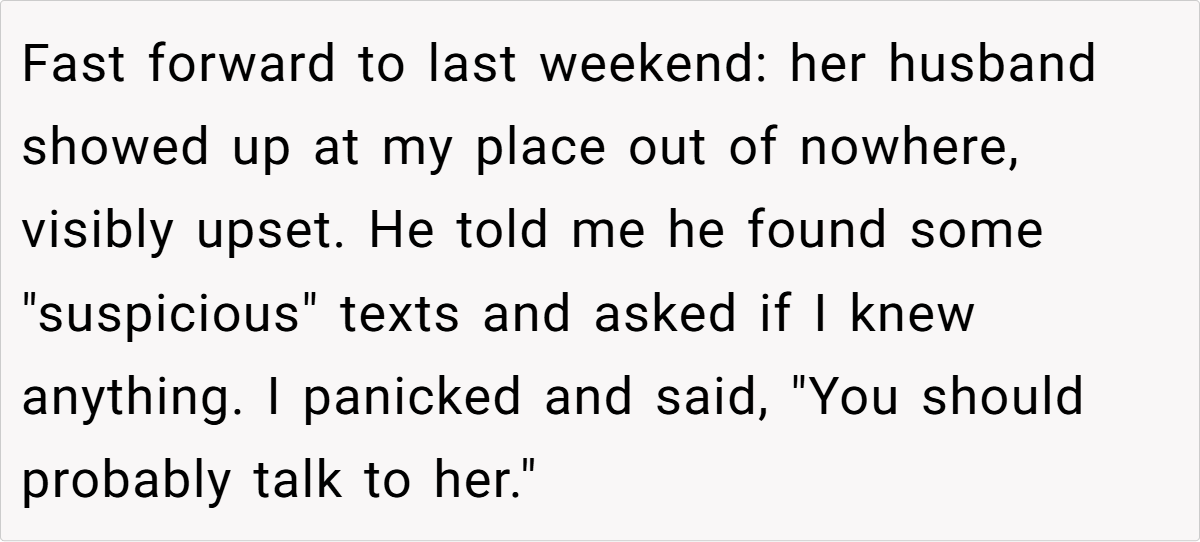
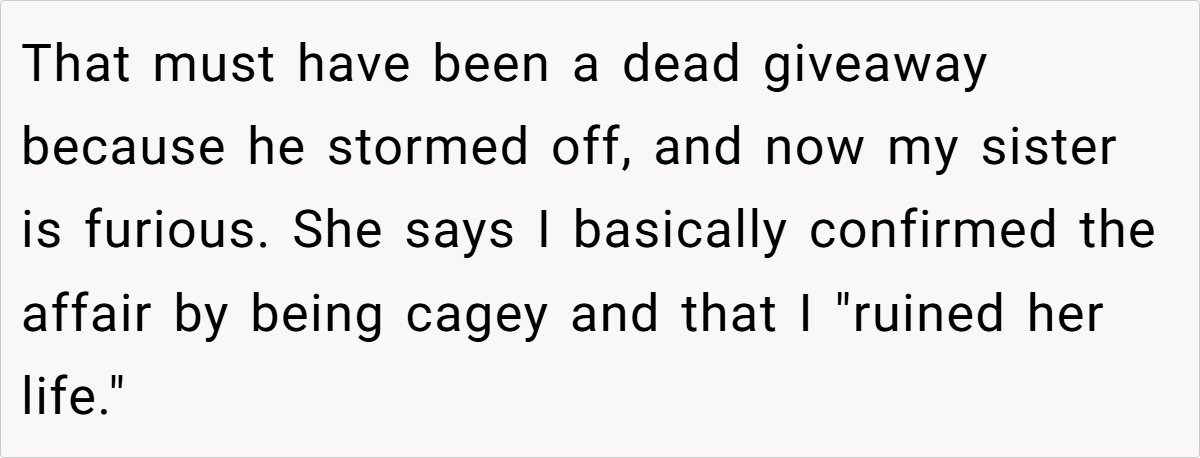
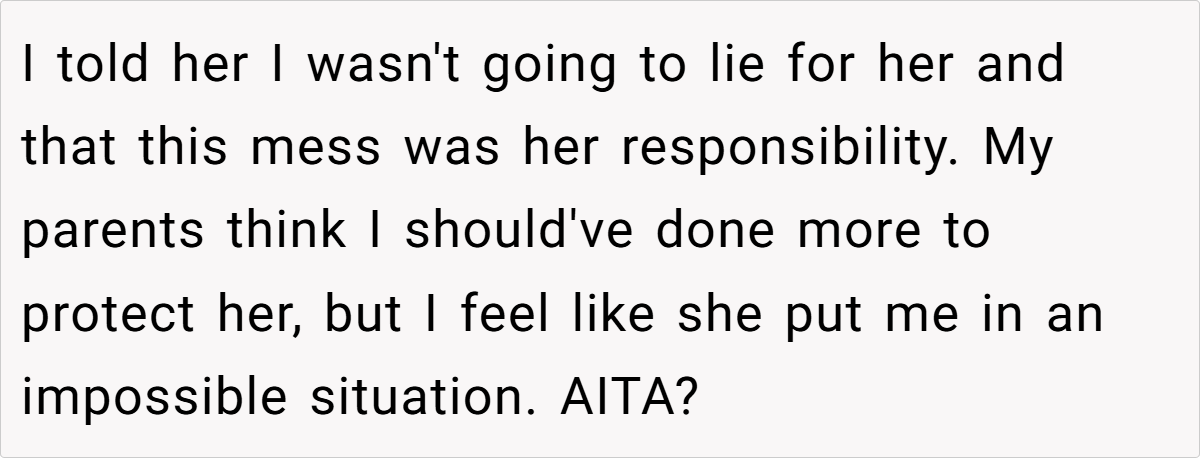
Expert Analysis:
The Cheater’s Mindset: Why They Blame Others
One of the most common patterns among people who cheat? They rarely take full responsibility for their actions. Instead, they shift blame onto external factors—whether it’s their spouse, their circumstances, or in this case, OP.
According to Dr. Shirley Glass, a leading psychologist on infidelity, cheaters often experience cognitive dissonance, a psychological phenomenon where they struggle to reconcile their self-image with their actions. Instead of admitting fault, they look for scapegoats to ease their guilt.
That’s exactly what’s happening here. OP’s sister isn’t mad because OP did something wrong—she’s mad because she got caught.
The Role of Guilt Projection
Guilt projection is another major factor in this type of conflict. When people feel guilty but don’t want to confront their wrongdoing, they lash out at those around them. In a study published in the Journal of Personality and Social Psychology, researchers found that guilt-ridden individuals often redirect their frustration onto others to avoid dealing with their own shame.
By blaming OP, the sister avoids the uncomfortable truth: She destroyed her marriage, not OP.
Should Family Loyalty Extend to Covering Up Cheating?
OP’s parents think they should have “protected” their sister, but what does that even mean? Does family loyalty mean lying for someone, even when they’ve done something objectively wrong?
Ethicists argue that loyalty should never come at the cost of integrity. Dr. David Callahan, author of The Cheating Culture, explains that enabling dishonesty—whether in relationships, business, or family—only creates a cycle where people believe they can act without consequence.
In other words, by refusing to lie, OP wasn’t being disloyal—they were refusing to enable their sister’s bad behavior.
Lessons Learned & Moving Forward
- Cheaters Often Shift Blame – OP’s sister is a textbook example of how people rationalize their wrongdoing. Rather than taking responsibility, she’s lashing out at those who won’t lie for her.
- Family Loyalty Has Limits – Being family doesn’t mean enabling bad behavior. OP wasn’t disloyal—they simply refused to lie.
- Truth Comes Out Eventually – Even if OP had covered for their sister, the husband was already suspicious. The affair would have come to light one way or another.
- Guilt Doesn’t Equal Obligation – Just because OP feels bad doesn’t mean they were wrong. It’s natural to feel uncomfortable when family turns against you, but that doesn’t mean their expectations were fair.
Here’s what Redditors had to say:
Unsurprisingly, Reddit overwhelmingly sided with OP. Many pointed out that the sister ruined her own life, not OP. Others highlighted the absurdity of cheaters blaming those around them for exposing the truth.
A few even argued that OP should have been more direct and told the husband outright. The general consensus? Protecting a cheater only enables their behavior, and OP was well within their rights to refuse to play along.

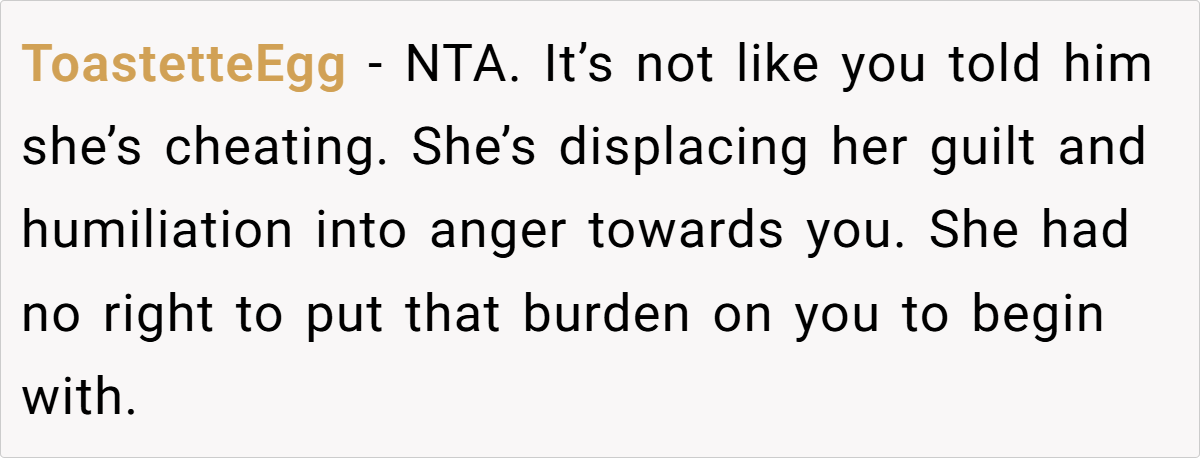
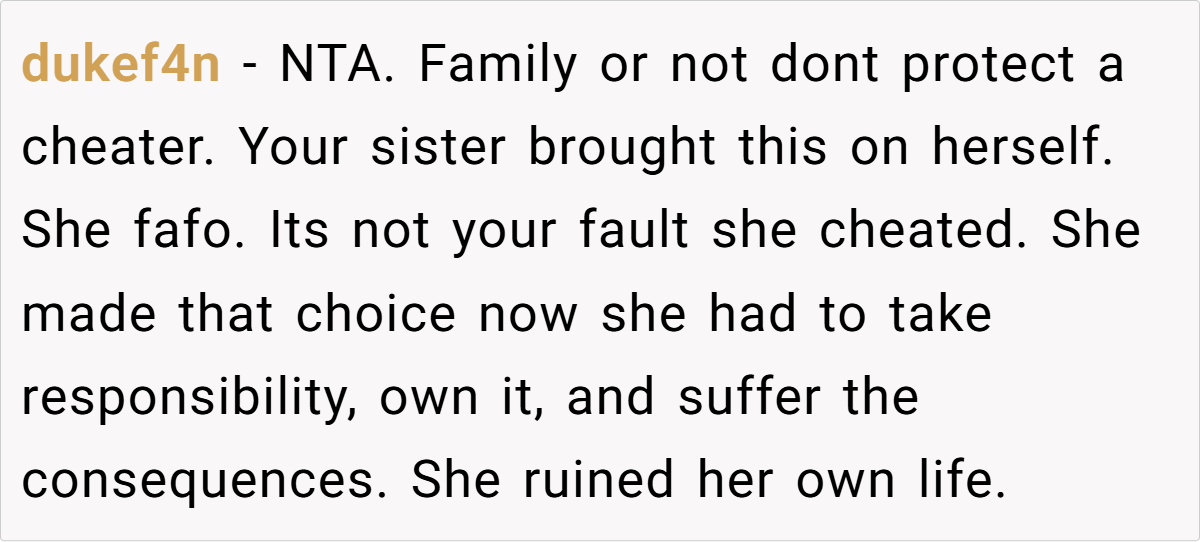
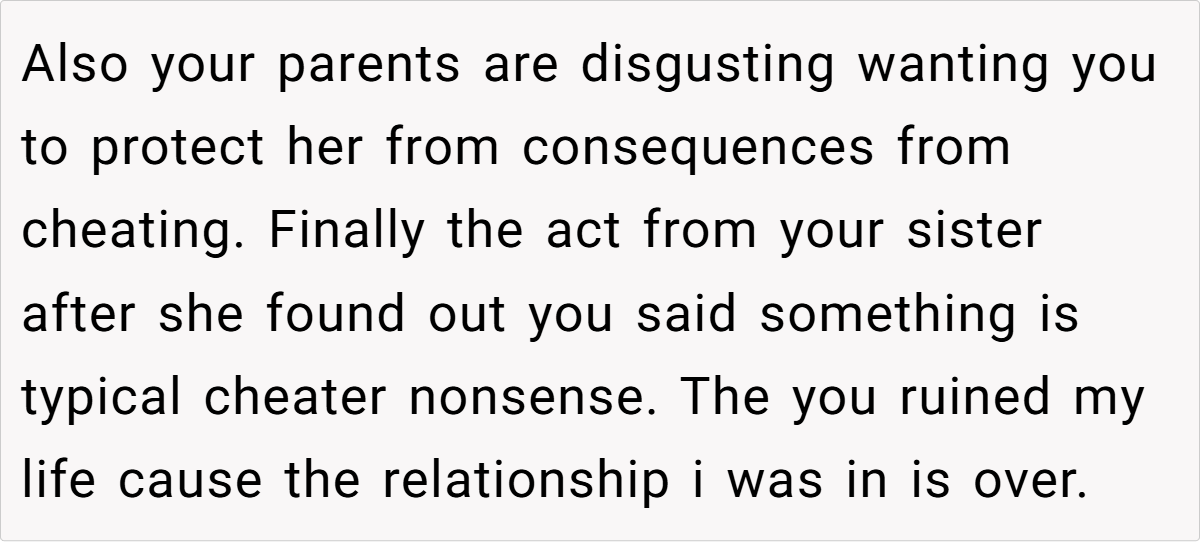


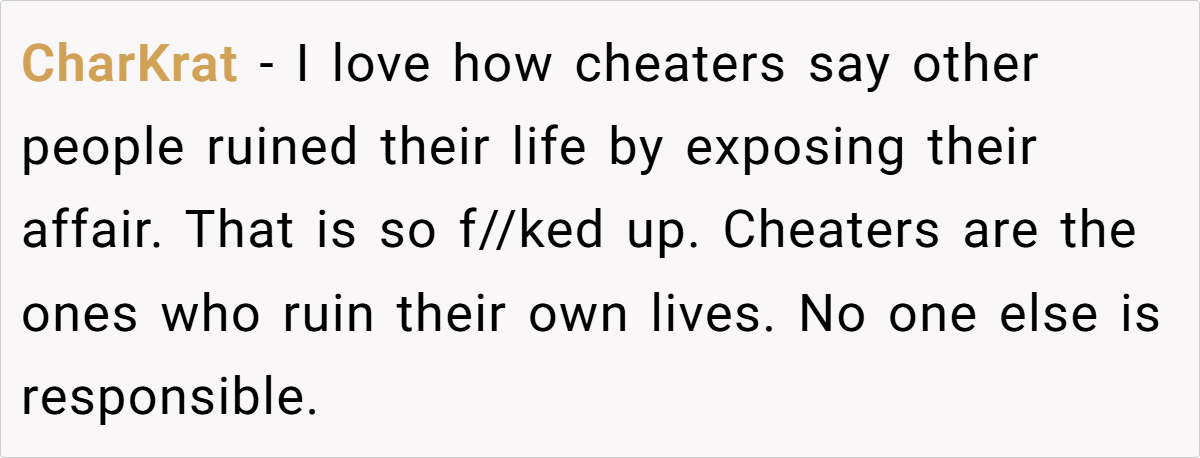


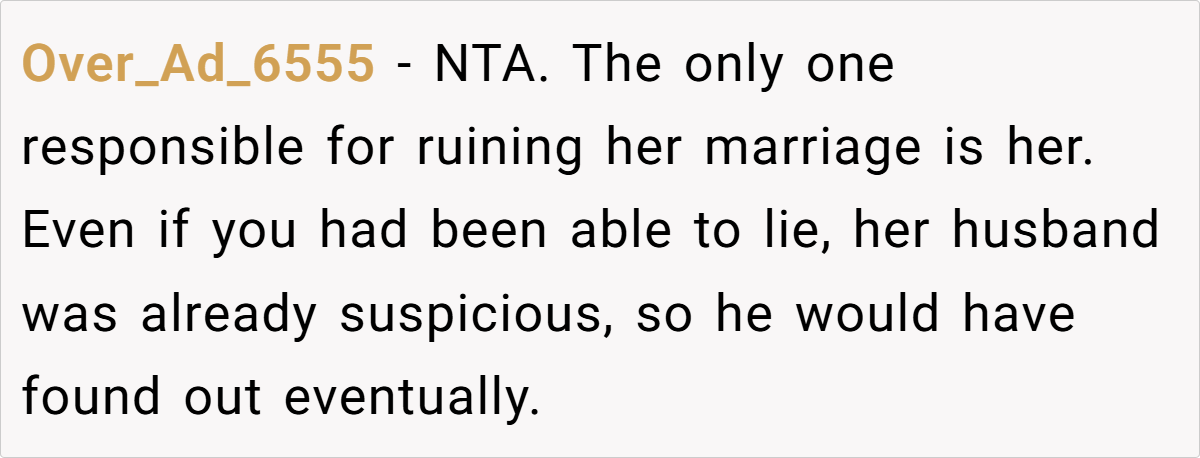


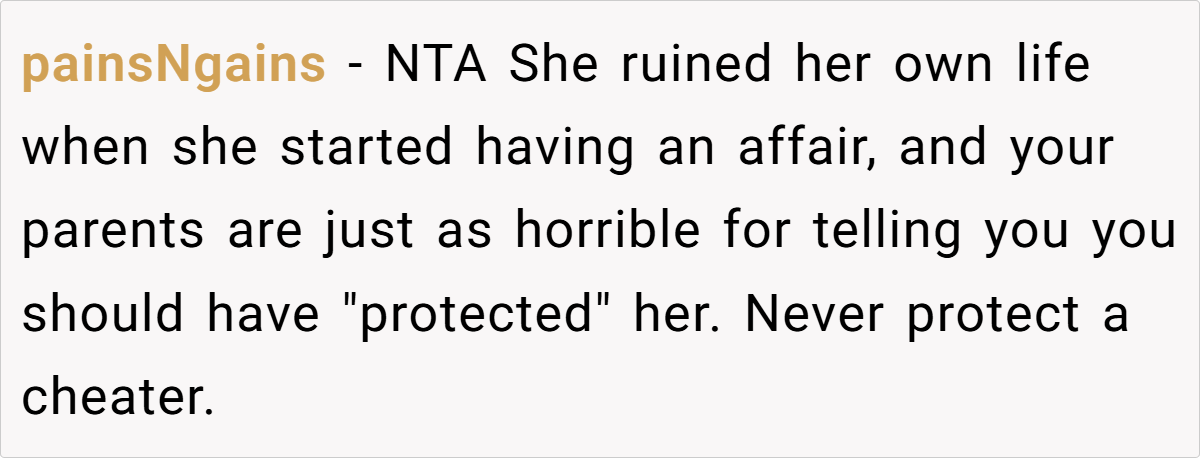
At the end of the day, the person responsible for ruining OP’s sister’s life… is OP’s sister. Cheating is a choice, and every choice has consequences. The only thing OP did was refuse to participate in the deception.
What do you think? Should OP have handled it differently, or were they in the right? Let’s discuss.

